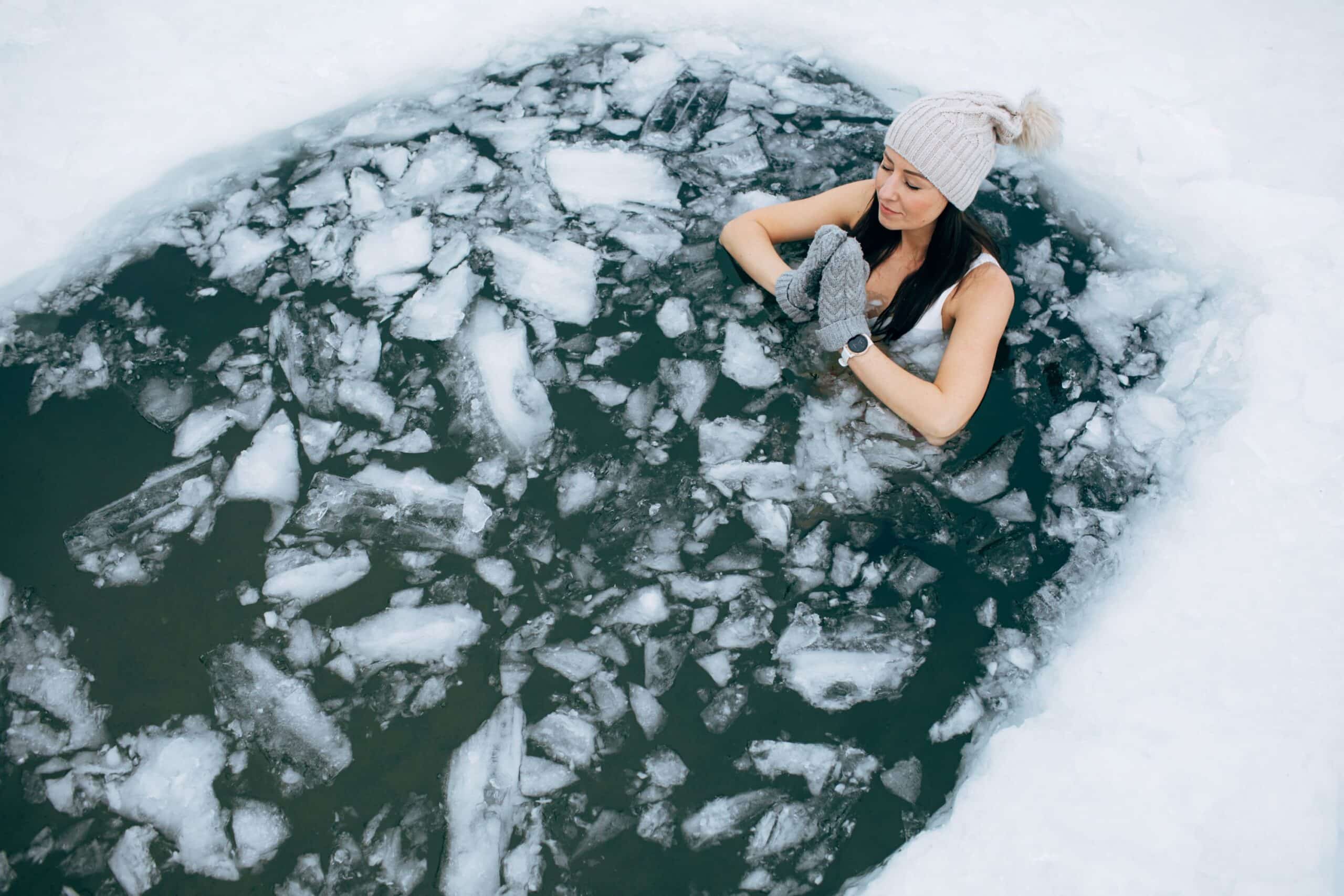Findings from the study examining the effects of cold water swimming on the health and well-being of 1114 women, 785 of whom were going through menopause, showed that the majority of women, 63.3%, swam in the cold water specifically to relieve their symptoms; with 46.9% of the menopausal women experienced significant improvements in anxiety, 34.5% in mood swings, 31.1% in low moods, and 30.3% in hot flashes as a result of cold water swimming.
Some of the women reported that they found the cold-water experience to be “healing” and that it was “an immediate stress/ anxiety reliever.” One woman said, “Cold water is phenomenal. It has saved my life. In the water, I can do anything. All symptoms (physical and mental) disappear and I feel like me at my best.”
“Cold water has previously been found to improve mood and reduce stress in outdoor swimmers, and ice baths have long been used to aid athletes’ muscle repair and recovery,” said senior author, Professor Joyce Harper (UCL EGA Institute for Women’s Health).“Our study supports these claims, meanwhile, the anecdotal evidence also highlights how the activity can be used by women to alleviate physical symptoms, such as hot flushes, aches, and pains.”
“More research still needs to be done into the frequency, duration, temperature and exposure needed to elicit a reduction in symptoms. However, we hope our findings may provide an alternative solution for women struggling with the menopause and encourage more women to take part in sports,” said Harper.
Most of the women reported that they were likely to swim in summer and winter months wearing swimsuits rather than wetsuits. Additionally, most of the women said that their main motivation for cold water swimming was being outside, improving their mental health, and exercising alongside of aiding their menopausal symptoms.
“The majority of women swim to relieve symptoms such as anxiety, mood swings and hot flushes. They felt that their symptoms were helped by the physical and mental effects of the cold water, which was more pronounced when it was colder,” explained Harper. “How often they swam, how long for and what they wore were also important. Those that swam for longer had more pronounced effects. The great thing about cold water swimming is it gets people exercising in nature, and often with friends, which can build a great community.”
Among the 711 women experiencing menstrual symptoms, 46.7% said that cold water swimming improved their anxiety, 37.7% reported improved mood swings, and 37.6% had decreased feelings of irritability.
Harper further explained that the cold-water activity can carry benefits, but it does come with certain risks, “Caution must be taken when cold water swimming, as participants could put themselves at risk of hypothermia, cold water shock, cardiac rhythm disturbances or even drowning. Depending on where they are swimming, water quality standards may also vary. Raw sewage pollution is an increasingly common concern in UK rivers and seas. And, sadly, this can increase the likelihood of gastroenteritis and other infections.”




